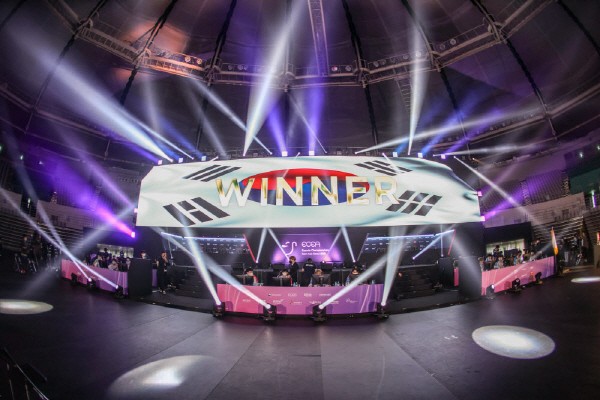
The issue of nurturing future human resources in the domestic e-sports industry is up for the National Assembly inspection. In the first half of this year, about 1,000 people appliedfor the job of the Korea e-Sports Association, which had 60 openings, and even though there was a lot of interest, but the specialized educational institutions and policies to support this were insufficient.
The Culture, Sports and Tourism Committee will review measures to foster human resources in the e-sports industry at the 2021 National Assembly inspection to be held next month. Sang-heon Lee, a member of the Democratic Party of Korea, will ask for policy alternatives along with related questions. The manpower in the e-sports industry consists of not only players who play the game, but also coaches and support personnel. The domestic e-sports industry is 100% dependent on private education. This is because the current education system, such as policy and education organization, does not even give them an opportunity to explore e-sports related jobs. Compared to other industries as well as established sports, there is no opportunity to explore a career path or experience a job.
According to the '2020 e-sports survey' published by the Korea Creative Content Agency, 22% of the e-sports coaching staff of Korean professional clubs pointed out the lack of a systematic coaching staff training system. The 77% of the coaches are under the age of 30, and the influx of young people is very active. The role of assisting job search is important, but methods of acquiring relevant experience and knowledge are limited.
It is also pointed out as a problem that the inability to blend into the current education system to seek employment in e-sports jobs, which is centered on university entrance exams. This is because there are no related departments at the university, and they cannot experience it in higher education courses. It acts as a reason for young talent to be hesitant to enter the e-sports industry. When the supply of manpower slows, industrial competitiveness also goes low. The United States and the United Kingdom approach in terms of nurturing 'convergence talent'. In China, which is tightening game regulations, but they still nurture talents regarding e-sports.
The growth of the Korean e-sports industry cannot be guaranteed unless a manpower nurturing plan is secured. Although it has achieved good results in international competitions, it has not been linked to industrial growth. The e-sports industry investment attraction, which recorded 116.3 billion KRWin 2019, plummeted to 32 billion KRWlast year. While the size of the global e-sports industry nearly doubled from 575.3 billion KRWin 2016 to 1.11 trillion KRW in 2020, the proportion of Korea decreased by 0.3% point(P) from 16.8% to 16.5%.
The government is carrying out promotion projects based on the 'E-Sports (Electronic Sports) Promotion Act', but it is only at the declaration level. The budgets of related support agencies are also shrinking. The budget in 2019 was 27.6 billion KRW, down 21.4% to 16.8 billion KRW last year. The government recently proposed a goal of bringing the initiative in e-sports externally, such as holding Korea, China, and Japan e-sports competitions. However, they are not corresponding with manpower training and budget support. Rep. Sang-heonLee said on the 23rd, "The problem is that the environment is not prepared, such as being forced to choose a career in public education and e-sports. We have to open opportunity in public education system to experience jobs related e-sport.”
By Staff Reporter Hyunsoo Lee (hsool@etnews.com)